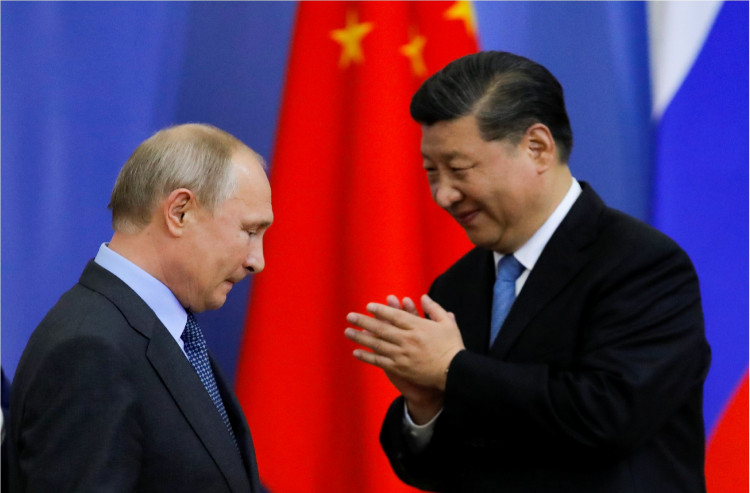Chinese leader Xi Jinping welcomed Russian President Vladimir Putin to Beijing, emphasizing the two nations' shared vision for a new international order. This meeting, which comes amid escalating global tensions, underscores the growing alliance between China and Russia, both of whom are challenging the traditional dominance of the United States and its democratic allies.
Putin's arrival in Beijing was marked with a red-carpet treatment, a stark contrast to the more subdued welcome U.S. Secretary of State Antony Blinken received during his visit to China in June. While heads of state typically receive grander receptions than foreign ministers, the difference in treatment was notable. Blinken's visit, the first by a top U.S. diplomat in five years, came during a period of frosty U.S.-China relations.
The visit had been postponed from February due to a spat sparked by what the U.S. described as a Chinese spy balloon flying over American airspace. Human rights activist Jennifer Zeng noted the lack of a red carpet and welcoming crowds for Blinken, describing it as a "deliberate humiliation" by Chinese standards.
What does this say?
Today, U.S. Secretary of State #Blinken @SecBlinken arrived in #Beijing, #China. Only the U.S. ambassador and Yang Tao, the director of the North America and Oceania Department of the Chinese Ministry of Foreign Affairs( a much lower level #CCP official) were… pic.twitter.com/6jdvnMO6Lx — Inconvenient Truths by Jennifer Zeng 曾錚真言 (@jenniferzeng97) June 18, 2023
The meeting between Xi and Putin comes at a time when geopolitical fault lines are becoming more pronounced. Russia's invasion of Ukraine and Israel's conflict with the Palestinian militant group Hamas are reshaping global alliances. Both China and Russia have criticized Israel's actions, calling for a ceasefire. This stance contrasts with the U.S., which has affirmed Israel's right to retaliate.
Putin's visit also coincides with U.S. President Joe Biden's trip to Israel, where he is expected to show support for the nation as it confronts Hamas. Xi and Putin are set to discuss the situation in Gaza and the ongoing conflict in Ukraine. China has positioned itself as a potential mediator in the Ukraine conflict, though it remains to be seen how proactive Beijing will be in this role.
The Beijing-hosted Belt and Road Forum, which Putin is attending, is a significant diplomatic event for China. The forum celebrates a decade since the launch of Xi's global infrastructure funding drive. Over 140 countries are expected to participate, showcasing China's expanding global influence.
Putin's presence at the forum offers him an opportunity to divert global attention from the war in Ukraine. Russia recently proposed a UN Security Council resolution calling for a ceasefire in the Israel-Hamas conflict. The motion, which did not condemn Hamas, was supported by China but rejected by several countries, including the U.S., UK, France, and Japan.
The strengthening ties between China and Russia are evident in their growing economic and diplomatic interactions. Last year, the two nations saw record trade, which continues to grow in 2023. They've expanded security cooperation, held joint military drills, and deepened diplomatic ties. Putin, in an interview with Chinese state television, praised Xi as a "friend" and highlighted the goal of increasing annual trade to $200 billion by next year.
As global dynamics shift and traditional alliances are tested, the deepening relationship between China and Russia is likely to play a pivotal role in shaping the new world order.





